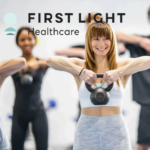DIETARY IRON REQUIREMENTS
What is iron?
Iron is a component of a number of proteins including haemoglobin, myoglobin, cytochromes and enzymes involved in redox reactions. Iron is an essential mineral, meaning our body cannot produce it and so we must obtain it from our diet.
What does iron do in our body?
Iron is responsible for transporting oxygen in your blood stream. The oxygen is carried from the lungs to tissues throughout the body, where it’s used to make energy. Iron is also essential for good immune functioning and is a component of many enzymes that drive energy production.
What happens if we are iron deficient?
Because iron is involved in oxygen transport and energy production, people with an iron deficiency can experience tiredness, fatigue, dizziness, difficulty concentrating and increased risk of infection.
If left untreated, an iron deficiency can develop into iron-deficiency anaemia, which is a severe type of iron deficiency where the body cannot produce enough red blood cells. People with iron deficiency anaemia can experience extreme fatigue, brittle nails, hair loss, pale complexion, shortness of breath, irritability, cold hands and feet and heart palpitations.
Is iron more important for women than men?
Women require more than double the amount of iron than men, which is to make up for iron lost through menstruation. This means women are more susceptible to an iron deficiency, so it is important women are conscious of getting enough iron through their diet.
How can I get more iron in my diet/what foods are high in iron?
Iron is found in two sources – haem and non-haem iron. Haem iron is the type of iron found in animal foods and is more readily absorbed than non-haem iron, which is the iron found in plant foods.
Good sources of haem (animal) iron include: red meat, such as beef, kangaroo and lamb, salmon, tinned tuna, pork, chicken and eggs.
Good sources of non-haeem (plant) iron include: legumes like chickpeas, lentils and red kidney beans, tofu, iron-fortified breakfast cereals like WeetBix, wholegrains such as wholemeal bread and rolled oats, quinoa, green leafy vegetables such as spinach and broccoli, as well as certain nuts and dried fruit.
Is iron important for pregnant women?
Iron requirements increase dramatically during pregnancy, making pregnant women at risk of deficiency. Iron is extremely important for pregnant women as it’s essential for creating more blood to supply nutrients to your baby and for baby’s brain development. An iron deficiency during pregnancy is associated with premature labour, low birth weight and intrauterine growth problems.
Are vegetarians more prone to iron deficiency?
Vegetarians can be at a higher risk of iron deficiency if their diet is not well-balanced.
Do we need more iron as we age?
Iron requirements for males remain the same with increasing age, however once women reach menopause their iron requirements decrease.
Anything else we don’t know about iron?
Certain foods can boost or inhibit your absorption. For example, vitamin C which is found in fruit and vegetables, boosts non-haem (plant) iron absorption. Whereas caffeine found in tea/coffee and certain minerals such as calcium can inhibit absorption. For more detailed/individualised advice, speak to an accredited practising dietitian.
*Source: Australian National Health and Medical Research Council (NHMRC), Nutrient Reference Values for Australia and New Zealand Including Recommended Dietary Intakes.
**Source: Nutrition Australia. nutritionaustralia.org
Iron Rich Recipe: Pumpkin and Lentil Salad with Grilled Tofu/Grilled Meat
Lentils and baby spinach are both rich sources of non-haem (plant) iron. Teaming this with a source of vitamin C, like cherry tomatoes, helps to boost absorption. This salad could be eaten as a main dish or with a side of grilled tofu for an iron-rich vegetarian dinner. Otherwise, serve this salad alongside grilled meat, such as beef or lamb.
Ingredients
1kg butternut pumpkin, diced into chunks
1½ tbsp extra virgin olive oil
1 garlic clove, crushed
2 tsp dried thyme leaves
1 tbsp balsamic vinegar
1 tsp wholegrain mustard
2 x 400g cans Puy lentils, drained and rinsed
½ red onion, sliced
100g bag baby spinach
1 punnet cherry tomatoes, halved
(optional) 40g feta cheese
(Optional) 400g firm tofu OR 400g lean red meat
Method
- Heat oven to 200C. Toss the butternut squash with 1 tbsp olive oil, garlic clove, thyme leaves and seasoning. Roast for 25-30 mins or until tender.
2. Meanwhile, mix together the balsamic vinegar, ½ tbsp olive oil, the wholegrain mustard and 1-2 tbsp water. Drain and rinse the canned and toss with the dressing, red onion, baby spinach and cherry tomatoes.
3. Divide the lentils between four plates. Top with the pumpkin, then crumble over cheese (if using).
4. Serve as a main dish or alongside grilled tofu or grilled red meat.



